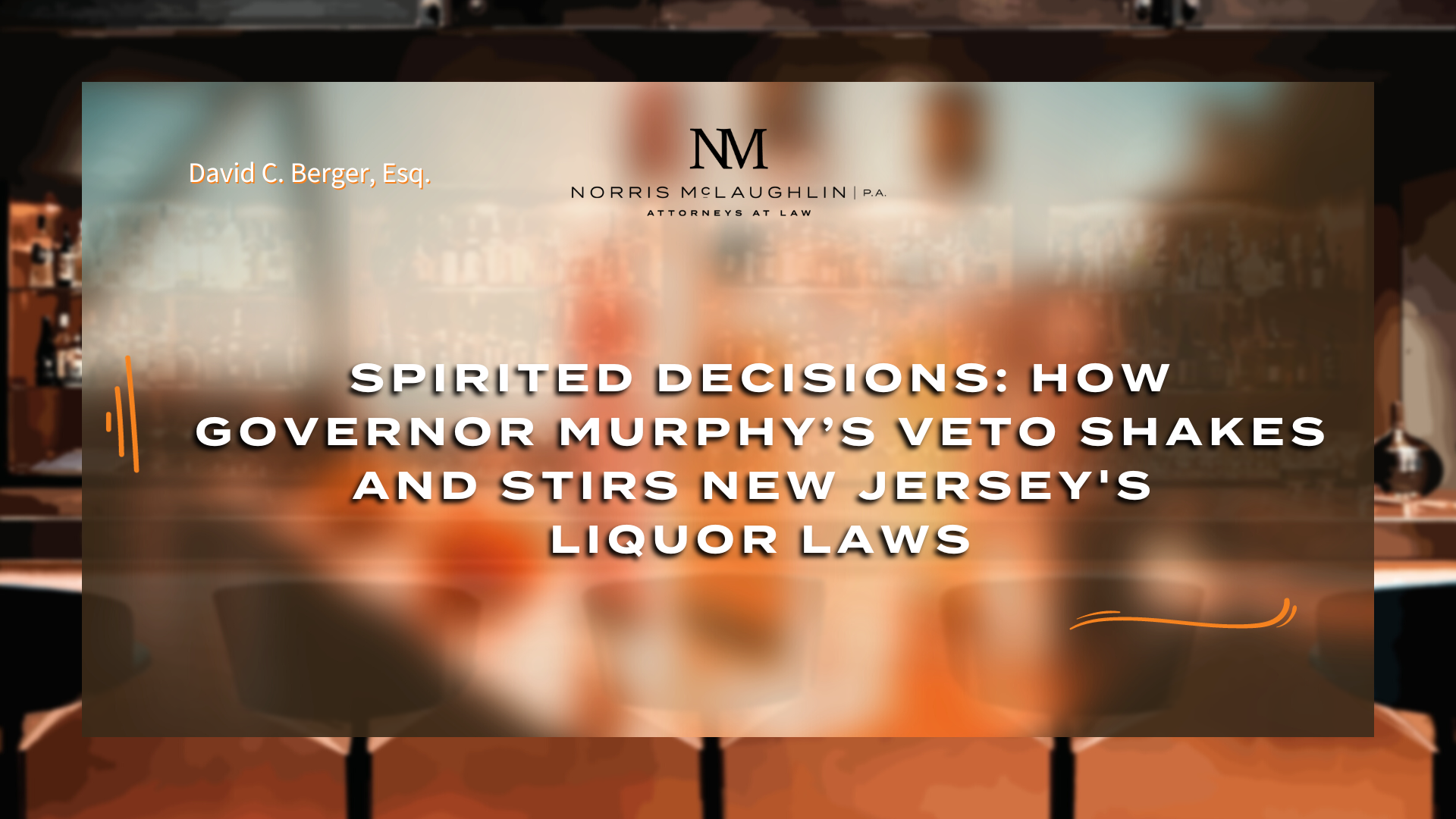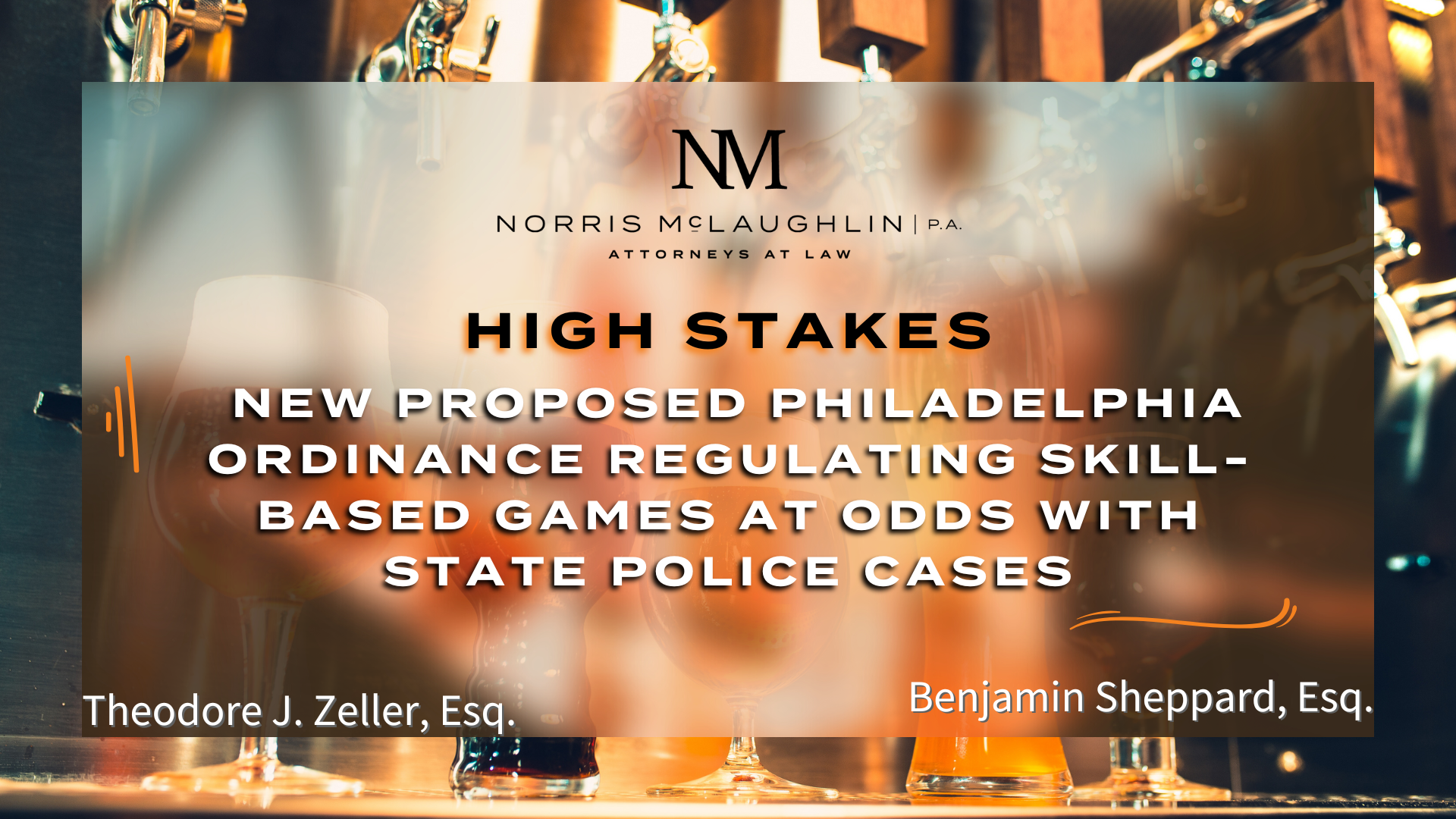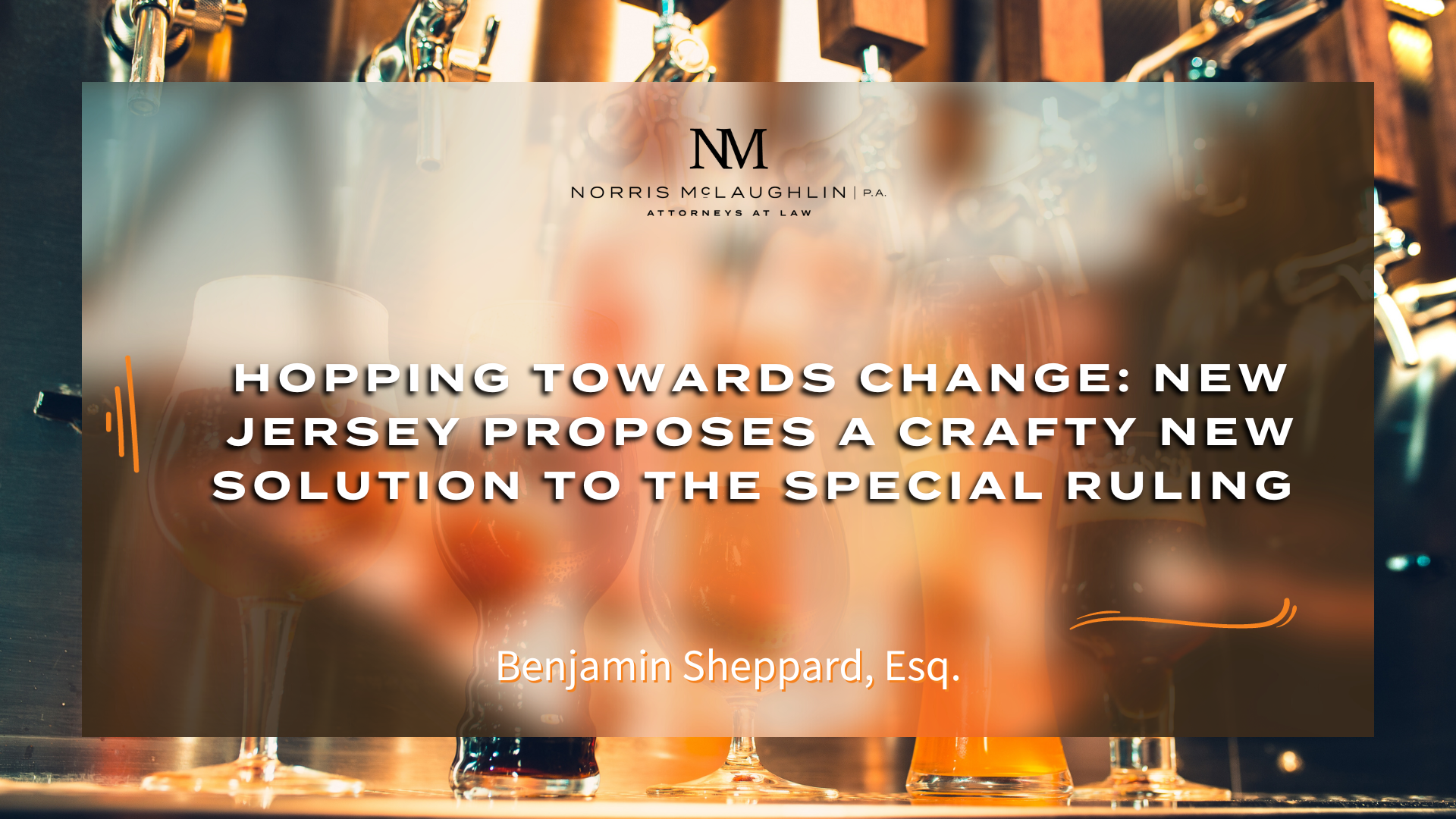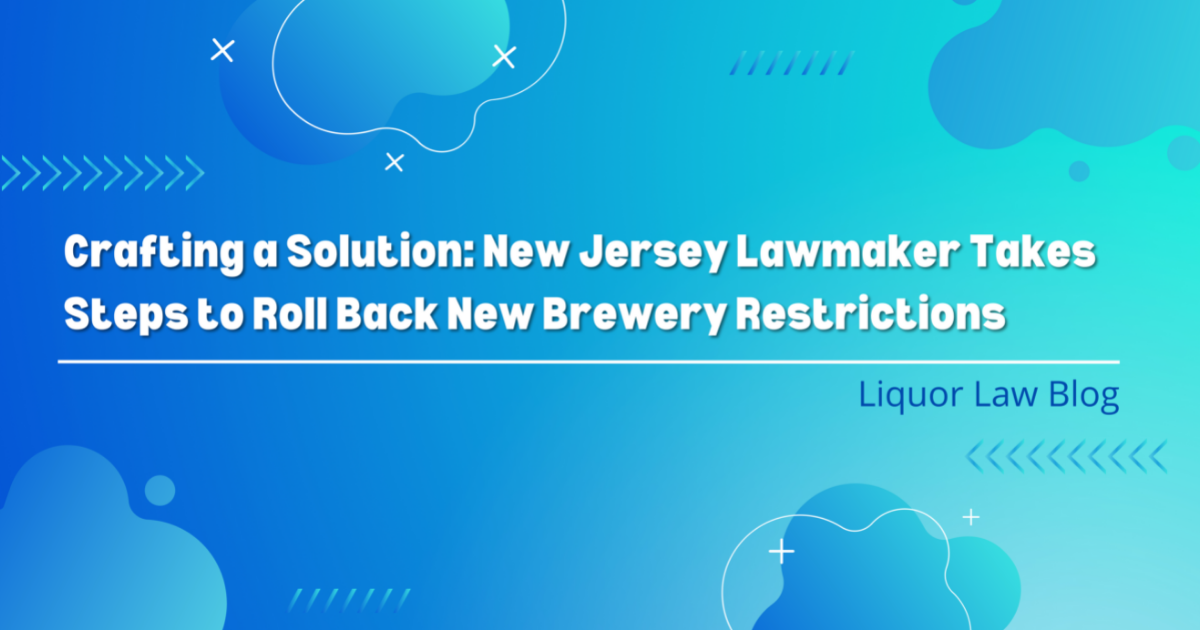Spirited Decisions: How Governor Murphy’s Veto Shakes and Stirs New Jersey’s Liquor Laws

In January 2023, New Jersey Gov. Phil Murphy spent a portion of his State of the State Address giving his vision for what he believed were badly needed reforms to NJ’s antiquated and complex liquor licensing regime. While his stated vision gained little traction with the state legislature, it recently passed piecemeal legislation reforming a portion of its licensing scheme. This legislation only rolled back onerous restrictions on NJ breweries, wineries, and distilleries concerning event restrictions, food sales, and tour requirements. Unfortunately, this passed legislation did not go far enough for Gov. Murphy, and on November 27, 2023, he conditionally vetoed the bill. This veto represents a pivotal moment in the ongoing debate about NJ's liquor license regulations.
This bill, which was widely popular and unanimously supported within the state legislature, sought to ease the stringent rules regarding events, food sales, and tour requirements that were imposed by the Division of Alcoholic Beverage Control on craft manufacturers. However, Gov. Murphy, in conditionally vetoing the bill, expressed his frustration with the state legislature for not doing more to modernize the state’s other liquor laws.
Governor Murphy, in conditionally vetoing the bill, proposed amendments that included auctioning off liquor licenses not renewed in the past eight years and barring renewals under certain conditions for licenses not requested in the year following their expiration. This approach aims to generate significant state and local revenues while also addressing the challenges new businesses face in acquiring these valuable liquor licenses. Notably absent is Gov. Murphy’s proposal to phase out population caps over five years. This proposal was met with staunch opposition from existing liquor license holders who invested heavily in their liquor licenses, sometimes worth over $1,000,000.00, over concerns with the potential devaluation of their liquor license asset. The conditional veto also suggests modifications to the liquor license system, such as freeing up inactive "pocket" licenses and expanding access to liquor licenses in malls. While legislative leaders are likely to be amenable to the conditional veto, it’s unclear if they will act on it. Additionally, several legislators expressed frustration at Gov. Murphy’s failure to approve the reforms in piecemeal legislation.
While Gov. Murphy's conditional veto is certainly frustrating for craft manufacturers who are badly in need of these necessary reforms, it still marks a major development in reforming New Jersey's liquor license laws. While the immediate impact is the easing of restrictions for breweries, wineries, and distilleries, the broader implications hint at a real reshaping of the state's liquor laws soon.
As these developments unfold, stakeholders in the liquor industry and the public at large will be watching closely to see how these changes will reshape the landscape of NJ's alcoholic beverage market. If you need any assistance as new liquor law legislation is enacted in NJ, please do not hesitate to reach out to me at dcberger@norris-law.com.




